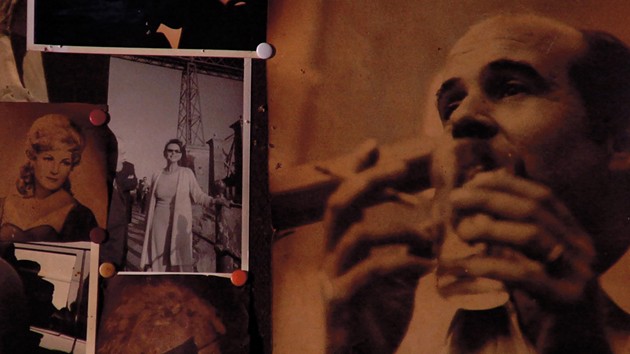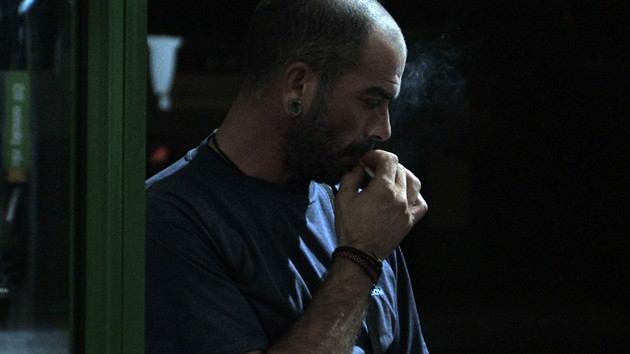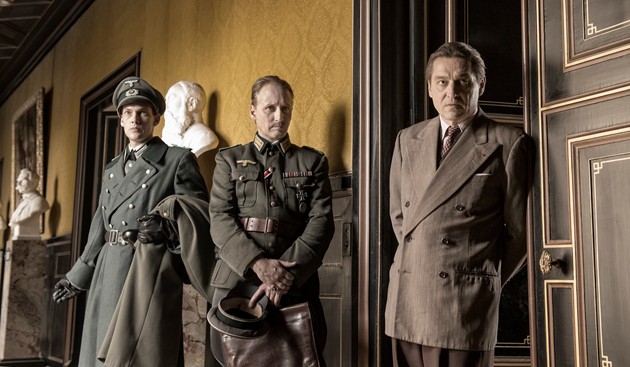
FRANCOFONIA (Alexander Sokurov) *OPENING NIGHT FILM
Alexander Sokurov's 2002 film Russian Ark was a cinematic portrait of St. Petersburg's Hermitage museum, its audacious single-take camera traveling through the museum's halls, and encompassing the enormity of Russia's culture and history. With his latest, Francofonia, he turns his lens on the Louvre, another landmark cultural institution. In contrast to the seamless, sinuous vision of Russian Ark, Sokurov opts for a much more collage-like and heterogeneous presentation, mixing staged scenes, archival footage, and historical/philosophical commentary (delivered by Sokurov himself). Focusing on the period of the Nazi occupation of Paris during World War II, and specifically on the figures of Louvre director Jacques Jaujard and Nazi Occupation officer Count Franziskus Wolff-Metternich, Sokurov ponders the function and meaning of cultural preservation, and its connections to state power and historical forces. It's a dense, complex, and hypnotically searching interrogation that is thought-provoking, unsettling, and both visually and intellectually stimulating.
(Jan. 8, 7pm)
JOAO BENARD DA COSTA - OTHERS WILL LOVE THE THINGS I HAVE LOVED (Manuel Mozos)
This beautiful and moving portrait of da Costa, the late director of the Portuguese Cinematheque, who died in 2009, is an elegy to a man who defined himself by his great love for, and inspiration from, moving images and great works of art. Nicholas Ray's Johnny Guitar (a work da Costa particularly revered, and which will screen at the fest afterward), Ernst Lubitsch's The Shop Around the Corner, and Carl Dreyer's Ordet, among other films, meld with home movies and family photos, all of these moving images forming a wondrous conversation between art and life. This film posits the optimistic idea that one can, in a sense, cheat death - a notion punctuated by the resurrection depicted in Ordet - by surrounding oneself with the greatest examples of artistic beauty.
(Jan. 9, 1:30pm)
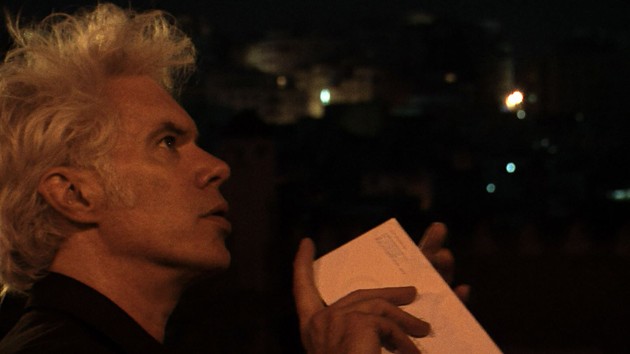
BEHIND JIM JARMUSCH and TRAVELING AT NIGHT WITH JIM JARMUSCH (Lea Rinaldi)
This fascinating pair of documentaries shadow director Jim Jarmusch during the making of The Limits of Control (in Behind Jim Jarmusch) and Only Lovers Left Alive (in Traveling at Night with Jim Jarmusch). These films greatly transcend the typical "behind the scenes" looks at movie sets with their intimacy and detailed depictions of the process and the craft of filmmaking. Just as in Jarmusch's films themselves, Rinaldi is deeply immersed in the atmosphere of the locations, whether it is the Seville, Spain of The Limits of Control or the Tangiers, Morocco of Only Lovers Left Alive. Rinaldi's presentations of the structured anarchy of Jarmusch's filmmaking method - open to collaborations and changes suggested by actors and cinematographers, yet conforming to a detailed and specific artistic vision - prove to be just as compelling as the finished works themselves. These documentaries will be followed by a screening of The Limits of Control.
(Jan. 16, 2:30)
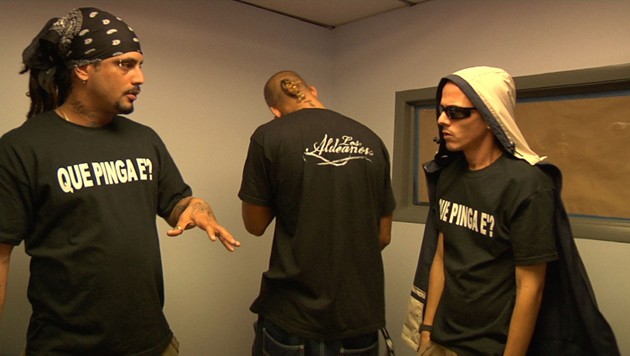
THIS IS WHAT IT IS (Lea Rinaldi)
This is an engaging, lively portrait of the Cuban hip-hop duo Los Aldeanos (El Aldeano and El B), who are vocal in their criticism of the Cuban government, and whose lyrics vividly detail the many problems in their country. As a result, their music cannot be officially distributed, and they are often harassed, and sometimes jailed, by the authorities. Their music is by necessity underground, yet is massively popular and distributed online and sold on the streets. This Is What It Is follows the duo - who often collaborates with Silvito El Libre, another hip-hop artist who is the son of Cuban folk music legend Silvio Rodriguez - over six years as they build a following in their home country, and are eventually granted permission to perform concerts abroad, including Miami.
The group angers both the Cuban government and Cuban exiles in Miami by refusing to be co-opted by anyone else's political agendas, and insisting on shining a light on the harsh realities of daily existence in Cuba. Nevertheless, they retain a love for their country, and the anger of their lyrics stems from a desire for change and a new, modern revolution. Rinaldi's searching and deeply intimate observational filmmaking makes this a vibrant and vital work.
(Jan. 15, 7pm)
JET LAG (Eloy Dominguez Seren)
Jet Lag begins as a quiet, observational documentary look at the night shift of a gas station in Portugal. However, there is an occurrence that completely changes this film's form, and which turns it self-reflexively on its head. I won't spoil things by revealing what that is, as the dual observation at work here - of both the events unfolding in front of the camera and the filmmaking process itself - changes the nature of the film practically minute by minute. Jet Lag intriguingly combines the utterly mundane and a sort of tabloid spectacle, making for a unique, and quite strange, viewing experience.
(Jan. 24, 6:30pm; screening with Meurtriere and Lenz Elegy)














